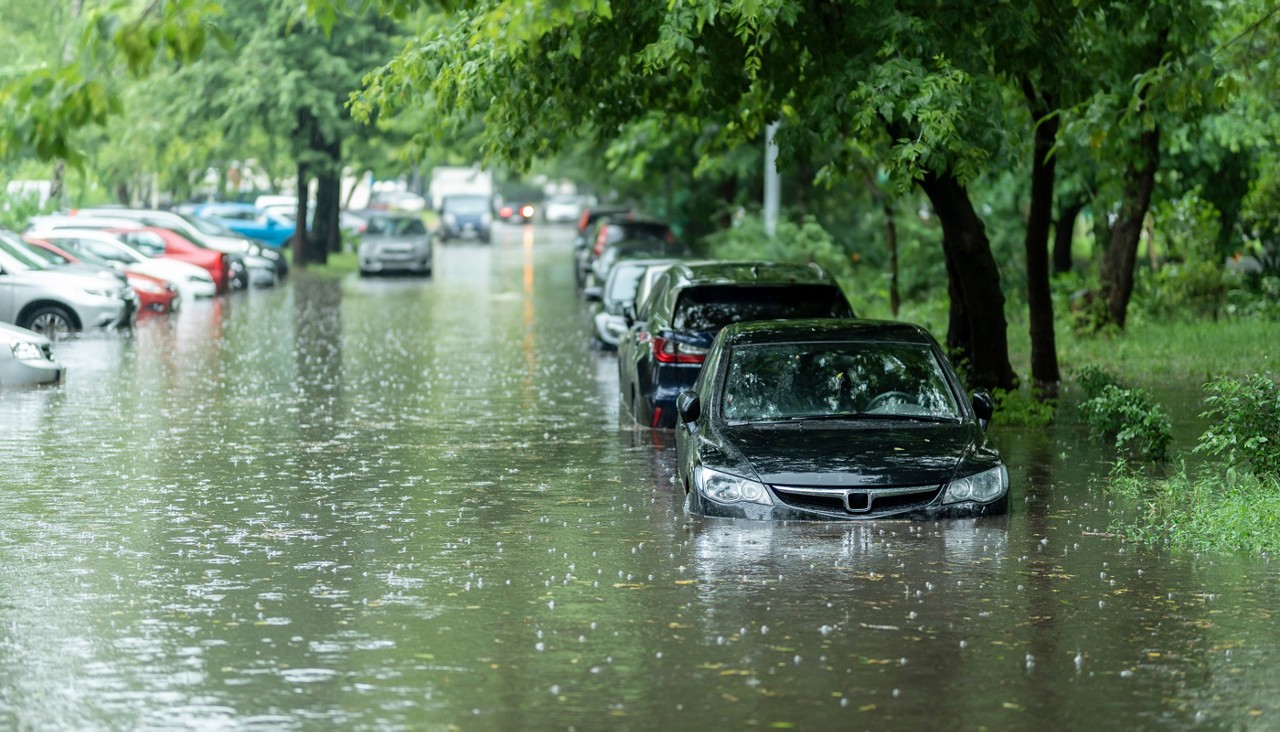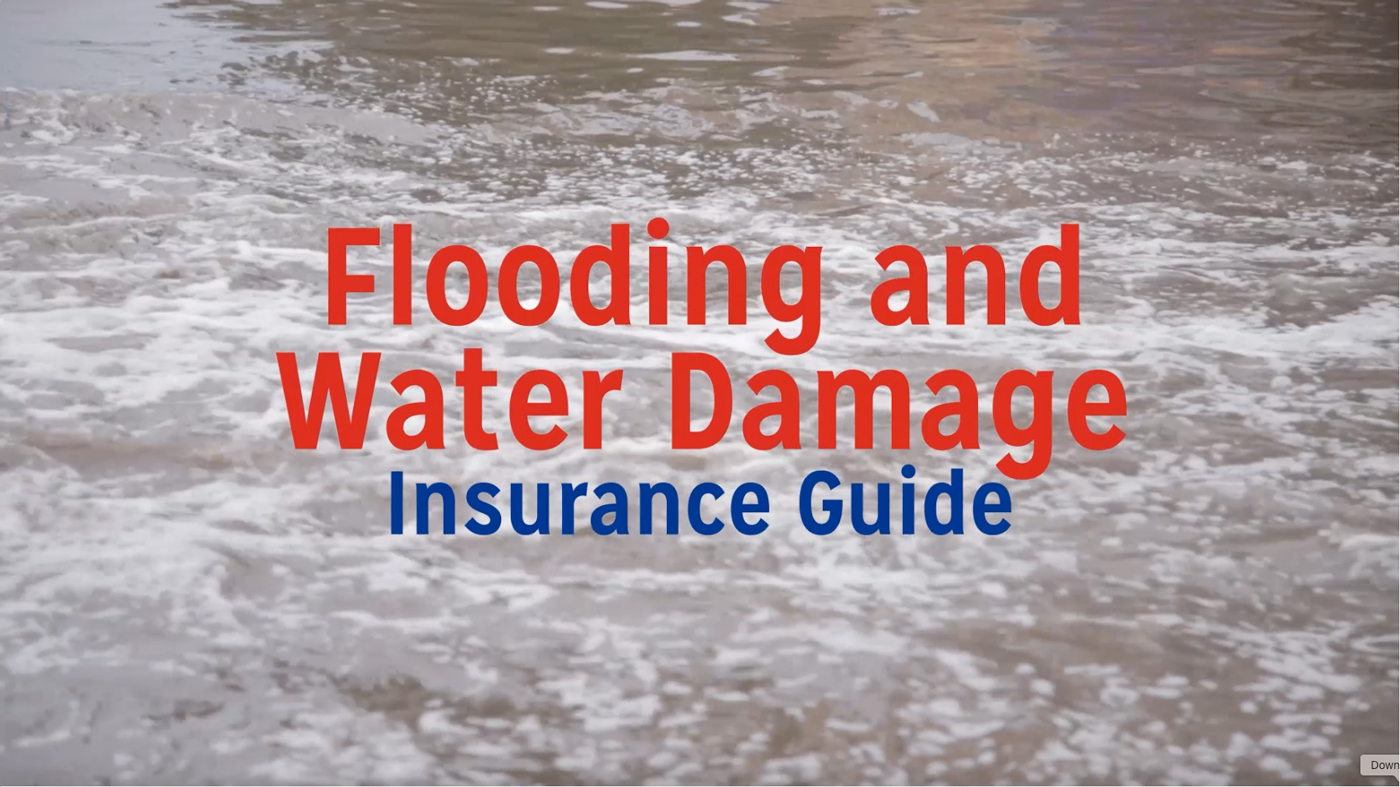To ensure you receive the best service possible,
please enter your zip code below:

Summary:

If your car is damaged due to flooding or other water damage, you are likely wondering if your car insurance covers the loss. The answer: It depends. Basic liability-only insurance policies will not cover damage from losses such as these. In order to be protected, your policy generally needs to include comprehensive coverage.
Comprehensive insurance covers damage to your vehicle from losses unrelated to collisions, such as theft, vandalism, natural disasters and fire. It also covers damage from falling objects and contact with animals.
While liability coverage is required by most states, comprehensive coverage is typically optional. However, if you have a loan or are leasing your vehicle, the lienholder might require you to purchase comprehensive coverage at a certain minimum level.
Comprehensive insurance typically covers water damage from flooding, rain and hailstorms. If you don’t purchase comprehensive insurance, repairs for damages due to these types of losses will come out of your own pocket.
Strong winds, hail and flooding from severe storms can all seriously damage your car. Here are a few ways to help protect your ride before, during and after bad weather.
Read more
It is easy to see how a car can become damaged when parked on a flooded street, as water rises to surround the car. Even an intense rain might cause water to enter your vehicle. Your car can sustain damage during a hailstorm, causing it to get dented and allowing water to enter through a broken window.
Damage to a car can also occur when driving through floodwaters. The transmission, engine, brakes and electrical system can be damaged. Even if you’re confident your car could drive through floodwaters without a problem, you might have issues with rust and corrosion down the line. Even worse, that water could be hiding a much more immediate and life-threatening danger like potholes or downed powerlines.
Potential ways water can damage your car:
It is important to note that not all of these losses will necessarily be covered, even if you have comprehensive insurance.
Electric vehicles can suffer similar losses when involved in a flood. In addition, there is the risk of thermal runaway from lithium-ion batteries, when a short circuit causes the battery to overheat and potentially catch fire. This risk is increased when the flooding is due to saltwater, which is corrosive.
Much of the attention on preparing for hurricane season focuses on protecting your home, but little is said about your car. Follow these tips to help avoid a worst-case scenario.
Read more
Comprehensive insurance may cover losses from sudden and accidental damage to your car during a covered event. This means that your insurance may pay to repair or replace your vehicle if it is damaged by flooding or storms, minus your deductible. You will want to consult your car insurance policy for specifics on your coverage and policy limits.
Comprehensive coverage will not cover water damage that results from poor vehicle maintenance. For example, if water gets into your car due to a failed seal in the sunroof, it is unlikely your insurance company will pay for the damage under your comprehensive coverage, as it is your responsibility to keep your car in good condition. Similarly, you likely won’t be covered if you leave a car window open, allowing water to enter during a storm.
Even if you have a covered loss, comprehensive insurance does not typically include coverage for the loss of personal items in your vehicle, including:
However, these items may be covered under a homeowners or renters insurance policy instead.
Stay safe during a flood with AAA’s comprehensive guide to preparation and recovery. Learn how to protect your home, vehicle and family before, during and after a flood.
Read moreFlood insurance typically excludes vehicles from coverage. Flood insurance is designed to help protect building structures and their contents. Standard flood insurance policies exclude vehicles, like ATVs, golf carts, motorcycles and watercraft.
The best advice to remember when you encounter flooding while driving is, "turn around, don’t drown." You want to keep yourself safe, as it is easy for floodwaters to seem calm, but then sweep away a car in an instant. Head for higher ground, if possible, staying in the middle of the road to avoid deeper pockets of water on the sides. Once you have passed the flooded area, test your brakes to check for any issues.
If your car stalls while driving through water, do not attempt to turn it back on. Exit the vehicle when safe and head to higher ground.

Do not attempt to start your car’s engine if it has been flooded. Doing so could cause permanent damage to the engine and electrical system.
Steps to take after a flood:
Having sufficient insurance coverage is the best way to help protect yourself from potential losses. Insurance companies often institute “binding restrictions” when storms are predicted, prohibiting new policies from being issued and changes from being made to current policies. That is one of the reasons you need to ensure you always carry sufficient coverage.
Get protection
Talk with your AAA Insurance agent to review your coverage and help ensure you’re protected if your car suffers water or any other kind of damage.
This information is being provided for general informational purposes only. The Auto Club Group does not assume any liability in connection with providing this information.
Coverage is subject to all policy terms, conditions, exclusions and limitations. Discounts and savings opportunities subject to eligibility requirements. Subject to underwriting requirements. Prices may vary based on how you buy insurance, subject to availability in your state. AAA Insurance is a collection of AAA branded insurance products, services, and programs made available to qualified members. Personal lines insurance is underwritten by Auto Club Insurance Association (IL Auto, IL Home, MI Home, MN Home), Auto Club Group Insurance Company (IA Auto, IA Home, IN Auto, IN Home, NE Auto, NE Home, WI Auto, WI Home), Auto Club Insurance Company of Florida (FL Package), Auto Club South Insurance Company (FL Auto), MemberSelect Insurance Company (GA Auto, GA Home, MI Auto, MN Auto, TN Auto, TN Home), The Members Insurance Company (NC Auto, NC Home), and Universal Insurance Company (NC Auto, NC Home, SC Auto, SC Home). ©2025 The Auto Club Group. All rights reserved.
Colorado: Auto and Home Insurance provided by CSAA IG, a AAA Insurer.
Legal & Compliance Reviewed: May 2025